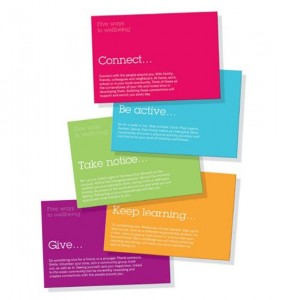Last week I spoke about happiness and the benefits it has for you. We aspire for happiness in so many areas of our life – family, friends, love, our sport of passion – but often work and happiness are seen as incompatible. I hope that my piece may have challenged some of your ideas.
Since the emergence of their discipline, organizational psychologists have spent decades to research the link between job satisfaction (or happiness at work) and job performance. Though initial research suggested a surprisingly weak correlation, more recent studies found a solid link, especially for jobs with more complex tasks: the happier you are, the better you perform.
There is no such thing as a free lunch
Many companies are also seeing to start that happiness policies are a worthwhile goal to pursue for them. They may offer free lunch, flexible working hours or other benefits to reward staff and show their appreciation. But the saying that there is no such thing as a free lunch also applies here: they have clear benefits for the employer.
As I mentioned last week, shoe retailer Zappos had made the happiness of their employees and customers a key priority, with great success. But there are other examples, like software firm Atlassian, where engineers have creation days to solve problems together in a team. Or places like Google or Facebook, where working conditions are shaped to allow for autonomy and creativity and are part of the mix to keep talent in.
Happier employee, a better company
Happiness at work is correlated with higher staff retention, less sick days, less accidents on the work floor, and better productivity and customer satisfaction. All good, one would say: happiness at work is good for individual employees and for their bosses and HR departments.
From the perspective of management, however, the argument might be different. Subscribing to the notion of neoliberal economist Milton Friedman, one could argue that policies to raise the happiness of employees are pursued at the detriment of the shareholder, and that it means that simply too much is being spent on employees.
Happiness, a good business case
Finance professor Alex Edmans had though that Friedman-adepts would be wrong. In a paper, he analysed the relation between happiness at work and subsequent profits on stock exchanges. (I can’t cover all methodological details here, but he measures happiness at work by a proxy: inclusion on the “Best Companies to Work” list. His research concluded that after companies reached high levels of happiness at work, their future (longer-term) stock market profits are about 2.3%-3.8% higher than other firms. Whatever Friedman thinks, happiness at work is a good business case.
But in the end, happiness at work is not for the shareholder. It is for the employee – each of us. I absolutely believe that there are ways for us to make ourselves happier in our jobs. A large part of our appreciation depends on motivation and perception. In many organisations, there is some degree of autonomy, and some possibilities to steer a position in a certain direction.
Happiness advice
If that fails, you might have another way to reduce boredom and stimulate inspiration. Try to convince your boss to hire happiness advisors like Nic Marks. Marks, of Happiness Works, thinks that happiness is a serious business: if happiness is associated with so many positive outcomes, employers would be stupid not to invest in it. A happier employee is a happier employee, which is great in itself, but also a better company. Happiness at work is not rocket science. It starts with asking people what makes them happy, what frustrates them, what keeps them going. And when you do that for your team, you can strengthen the positive points and tackle the weak ones – in the same way as a good manager would do with any problem in the office.

